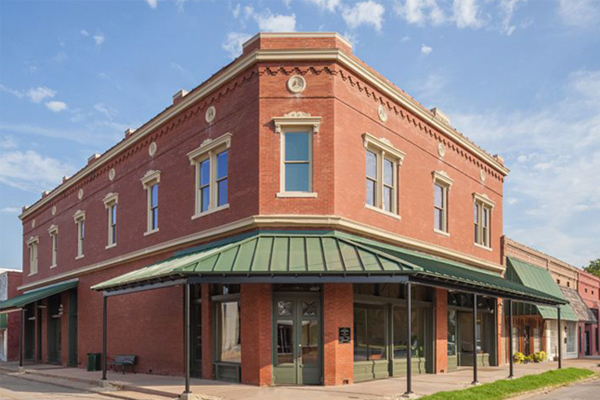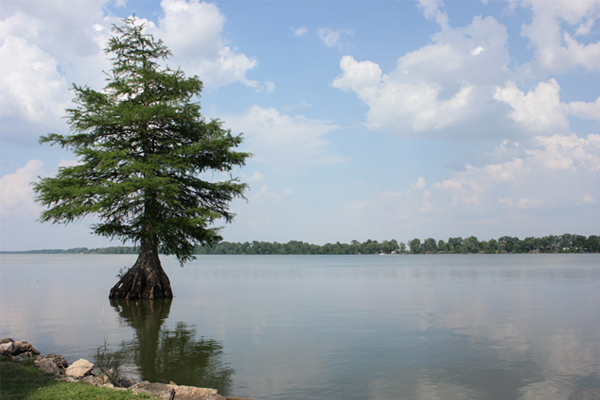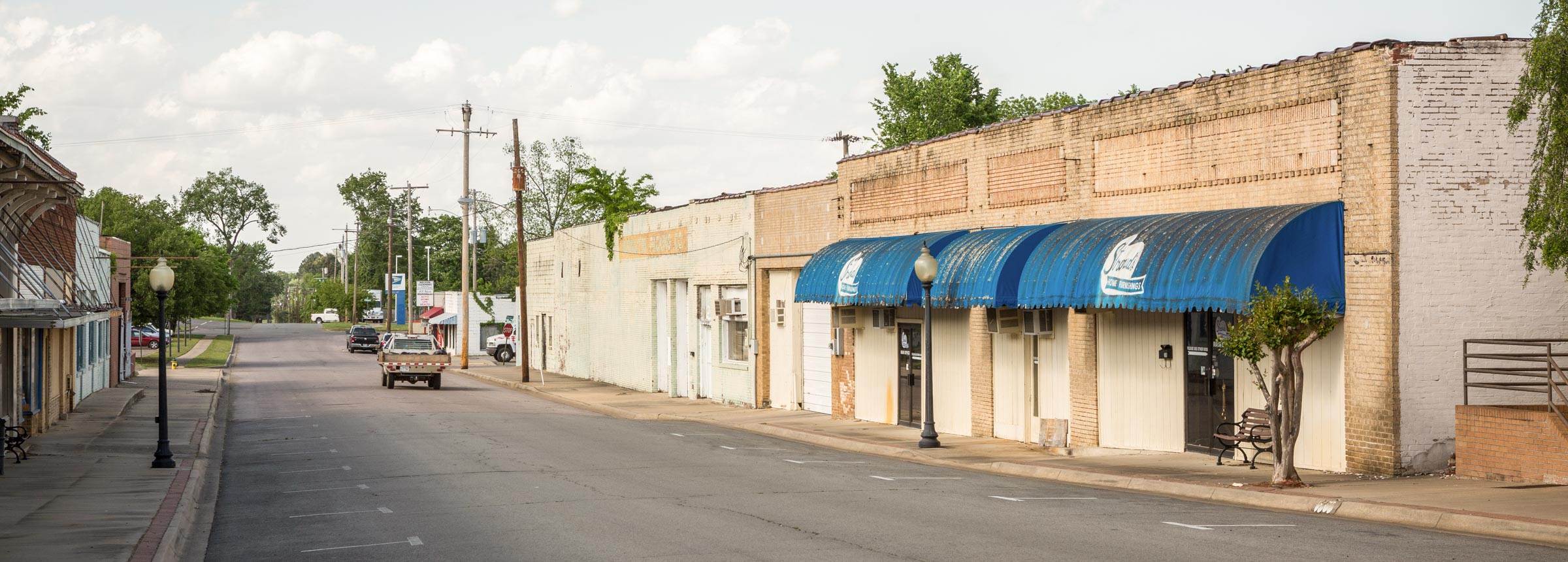
Loving Lake Village
“It makes me smile to think about all we’ve been able to accomplish. I’ve loved every second of it.”
By Linsley Kinkade, deputy director of U.S. Programs
Lake Village, Arkansas. It’s small, it’s rural. It’s one of my favorite places in the world. I first visited it as a Winrock employee 11 years ago. The people there welcomed me with wide open arms and made me a part of their family. I’ve shared many a dinner with Mayor JoAnne Bush and her family in their home. I’ve walked through abandoned buildings and dreamt of their promise. I’ve picked up nails at construction sites. I’ve listened to the mayor’s aspirations and defeats and strategized about how to move forward. I’ve had some of the most fun and rewarding experiences of my professional career in this town. (To view a video about Lake Village, click here.)

Soon after I started working at Winrock, Mayor Bush called our office to talk about an opportunity to renovate the dilapidated Tushek Building and turn it into a new municipal center. She said, “Linsley, I’m going to renovate that building, and you’re going to help me do it. My answer was, ‘Yes, ma’am.’”
We identified some funding sources, brought together $2 million, and made it happen. The new building houses all the city services. If you need to pay your water bill, see the fire chief or the chief of police, you go to one building and get all services you need.

When the police chief moved to the municipal center, the building that housed his office became a 24-hour fitness center free and open to all. If you live in Lake Village you pay nothing to have access to treadmills, Zumba, spin classes, all sorts of activities. A trail system connects the fitness center to the community garden, which operates at full capacity.
What’s so great about Lake Village isn’t just the big things, though, but the small ones, too. Renovating the building on Main Street required a lot of money and took a lot of time. But the city also engaged with high school students to do walking audits of the town’s sidewalks, to walk around and note where improvements needed to be made. Students presented their findings to the city council and the council voted on what could be improved. It was an innovative way to improve walkability in the community.

I grew up in small town Arkansas, so it means a lot to me to make changes in small communities like my home. My town had 1,200 residents, and the people there were hopeful. They came out and planted flowers on Main Street, they came out and ran for school board. That’s the life I knew as a kid, the life I saw my parents lead and the life I think so many people around the world really want. But you can’t do that if you don’t have economic opportunity or access to health care. You can’t do it if you don’t have a job or broadband. These are things that make rural communities thrive.
Winrock’s U.S. Programs doesn’t create cookie-cutter programs; we do what works for each community. We bring tools, experience and training to local communities. We find funding and help the community implement projects. We build capacity, which means we work with municipal leaders to build up their ability to take projects to the next level. Since I’ve been at Winrock, we’ve worked in roughly 75 communities with populations of 10,000 or less in Louisiana, Arkansas and Oklahoma. The legacy I hope we leave is that the capacity remains with the local leadership. It’s not that Winrock has all the answers. It’s that we grab onto the local spirit, give people hope and help create places where people can and want to live. It makes me smile to think about all we’ve been able to accomplish. And I’ve loved every second of it.
Related Projects

